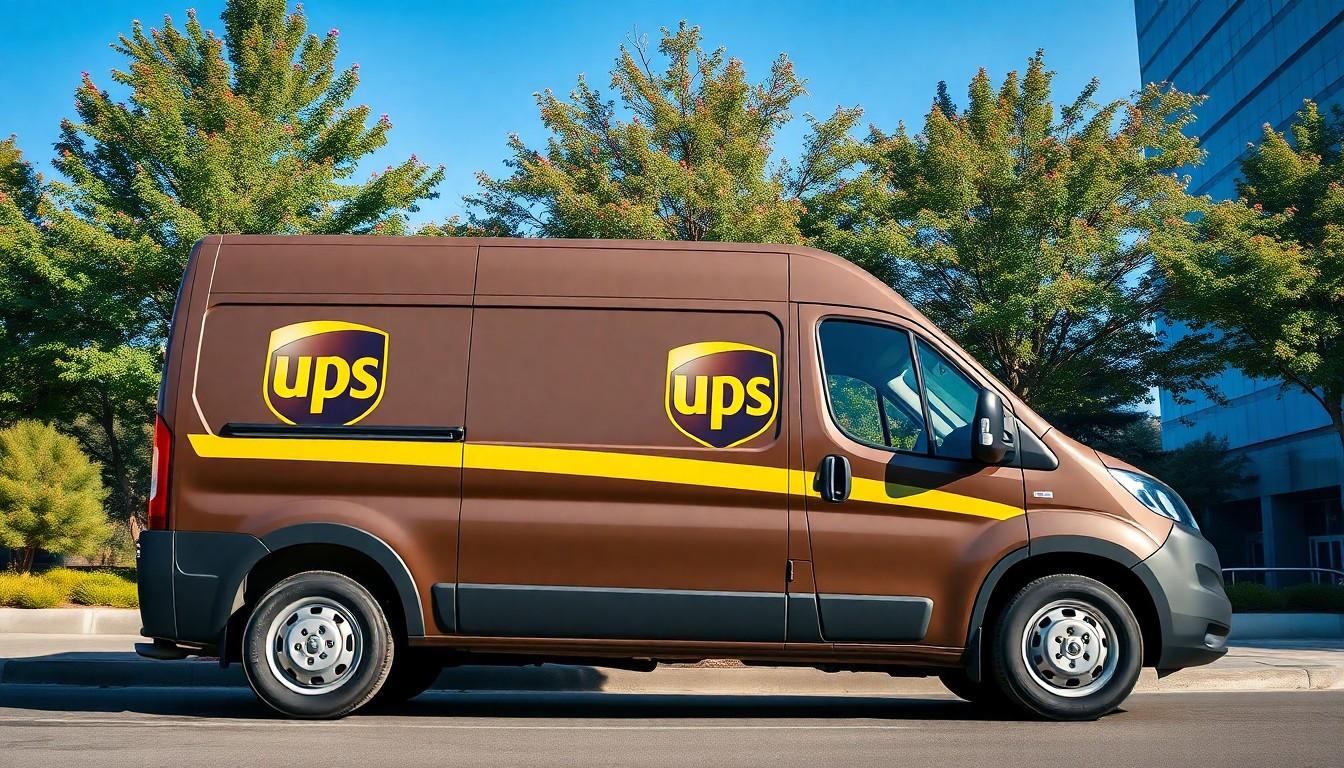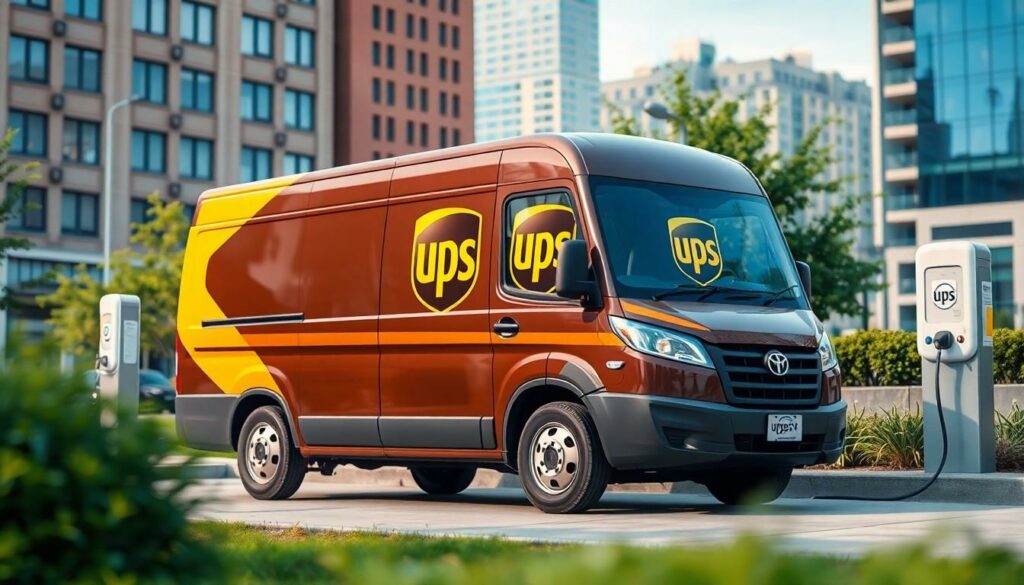Table of Contents
ToggleIn a world where eco-friendliness is the new black, UPS is charging ahead with its electric vehicles, proving that saving the planet can be as smooth as a well-oiled machine. Imagine delivery trucks that hum quietly through neighborhoods, leaving nothing but fresh air in their wake. It’s not just a dream; it’s UPS’s reality, and they’re making it work one electric mile at a time.
These electric vehicles aren’t just about cutting emissions; they’re about cutting costs too. With rising fuel prices, UPS is zipping past the competition while keeping their wallet happy. So buckle up and get ready to explore how UPS is transforming the delivery game, one shockingly efficient ride at a time. Who knew saving the planet could be this much fun?
Overview of UPS Electric Vehicles
UPS has committed to an extensive fleet of electric vehicles, enhancing delivery efficiency while promoting sustainability. The company aims for 40% of its global fleet to be electrically powered by 2025. Significant investments into electric vehicle technology demonstrate UPS’s focus on reducing carbon emissions and reliance on fossil fuels.
Electric vehicles within the UPS fleet include fully electric delivery trucks and vans. These vehicles benefit from advanced technology, enabling lower energy consumption and reduced maintenance costs. UPS’s collaboration with manufacturers like Arrival leads to the development of purpose-built electric delivery vans, tailored for urban environments.
Analysis of UPS’s electric vehicle initiative reveals substantial potential for cost savings. The company anticipates saving around $1 billion in fuel costs over the next few years through this transition. Charging infrastructure, including depot charging stations, enhances the efficiency of the electric fleet.
Expansion of the electric vehicle fleet strategically aligns with the company’s sustainability goals. According to UPS, the electric vehicles help achieve targets set under its broader environmental strategy, which includes reducing greenhouse gas emissions by 12% by 2025. UPS’s focus spans both delivery routes and depot operations, showcasing a comprehensive approach to sustainability.
Continued advancements in electric vehicle technology generate excitement for future enhancements. By integrating innovations, UPS positions itself as a leader in green logistics. This leadership not only supports environmental goals but also sets a precedent for the shipping and logistics industry, illustrating how sustainability can drive operational success.
Benefits of UPS Electric Vehicles

UPS electric vehicles contribute significantly to environmental sustainability and operational cost efficiency. By adopting this technology, the company enhances its overall performance while supporting its green goals.
Environmental Impact
UPS electric vehicles play a crucial role in reducing carbon emissions. These vehicles empower UPS to lower its reliance on fossil fuels. Aiming for up to 40% of the global fleet to be electric by 2025, UPS significantly impacts air quality. Innovative designs prioritize energy efficiency, showcasing advancements in the electric vehicle sector. Collaborating with manufacturers like Arrival enables UPS to deliver purpose-built electric vans for urban delivery needs. The fleet transition sets a benchmark in the logistics industry, illustrating a strong commitment to eco-friendly practices.
Cost Efficiency
Cost savings are a major benefit of UPS’s electric vehicle initiative. Utilizing electric vehicles leads to estimated fuel savings around $1 billion within the next few years. Maintenance costs for electric vehicles typically decrease due to fewer moving parts. Transitioning to this fleet model ensures UPS remains competitive in the shipping industry. Technological advancements in battery life and efficiency enhance operational cost savings further. Additionally, a reduction in fuel consumption correlates directly with lower overall operating expenses. This strategic move reinforces the financial viability of environmentally friendly logistics.
Types of UPS Electric Vehicles
UPS utilizes various electric vehicles to enhance its delivery services sustainably. These vehicles include delivery vans and cargo trucks, both designed with advanced technology to boost efficiency and reduce environmental impact.
Delivery Vans
UPS’s electric delivery vans are purpose-built for urban environments. These vans feature electric drivetrains that lower operation costs. They focus on maximizing energy efficiency, showcasing technologies that reduce energy consumption. Each van significantly contributes to UPS’s goal of achieving 40% of its fleet as electric by 2025. Collaborations with manufacturers like Arrival enable the creation of these innovative models. Delivery vans not only support UPS’s sustainability initiatives but also improve air quality in bustling city areas.
Cargo Trucks
Electric cargo trucks play a crucial role in UPS’s commitment to an electric fleet. These trucks are designed for larger deliveries, balancing capacity with energy efficiency. Advanced battery systems power them, reducing reliance on fossil fuels while enhancing performance. Cargo trucks align with UPS’s initiative for a greener logistics framework. Significant investments in this segment reflect the company’s commitment to cutting greenhouse gas emissions. Each electric cargo truck aids in facilitating efficient operations while promoting environmental responsibility.
Technological Innovations in UPS Electric Vehicles
UPS embraces cutting-edge technology in its electric vehicles, enhancing performance and sustainability. Innovations in battery technology and autonomous features stand out as key components of this transformation.
Battery Technology
Advanced battery technology drives the efficiency of UPS’s electric fleet. Lithium-ion batteries power these vehicles, offering long-range capabilities and rapid charging cycles. The vehicles utilize energy-dense battery systems that extend operational range while minimizing the frequency of charging. UPS has partnered with leading manufacturers to develop custom battery solutions, ensuring optimal performance across diverse delivery routes. Furthermore, regenerative braking systems recover energy during stops, further improving energy efficiency. Such advancements not only enhance vehicle performance but also reduce overall operational costs significantly.
Autonomous Features
Autonomous features play a pivotal role in the evolution of UPS electric vehicles. Equipped with smart navigation systems, these vehicles enhance operational efficiency. Advanced sensors and artificial intelligence improve route planning and coordination, enabling real-time adjustments based on traffic conditions. The technology allows for safer driving experiences, minimizing human errors. Additionally, UPS explores vehicle-to-vehicle communication, which improves delivery precision and reduces delays. Emphasizing innovation, these autonomous features align with UPS’s commitment to sustainability and advanced logistics.
UPS Electric Vehicles in Practice
UPS actively employs electric vehicles to enhance delivery operations and promote sustainability. Implementing innovative solutions leads to measurable results in reducing emissions and fuel costs.
Case Studies
UPS implemented several pilot programs to assess the effectiveness of its electric vehicles. A notable case involved the integration of electric delivery vans in urban settings, significantly lowering operational emissions. In one city, the pilot demonstrated a 50% reduction in fuel costs compared to traditional vehicles. This encouraging result spurred further investments in electric fleets, demonstrating the scalability of electric solutions across different markets. Another study showcased the use of electric cargo trucks for long-distance deliveries, effectively balancing payload capacity and energy efficiency. Data from these case studies underscores the advantages of integrating electric vehicles to achieve sustainable delivery practices.
User Feedback
User feedback highlights the positive reception of UPS’s electric vehicles among drivers and customers. Drivers appreciate the enhanced performance and lower maintenance requirements, noting that fewer moving parts lead to reduced downtime. Customers express satisfaction with UPS’s commitment to sustainability, often choosing services based on a company’s environmental efforts. Surveys reveal an 85% approval rating for the electric fleet initiative among users, reflecting strong community support. Increased awareness of climate change drives consumers to prefer companies with a proactive approach to sustainability, making UPS’s electric vehicle program align with customer values.
UPS’s commitment to electric vehicles is reshaping the logistics landscape. By investing in innovative technology and expanding its electric fleet, UPS is not only enhancing operational efficiency but also making significant strides toward sustainability. The anticipated fuel savings and reduced emissions showcase the financial and environmental benefits of this transition.
As UPS continues to lead the charge in eco-friendly delivery solutions, it sets a powerful example for the industry. The positive reception from both drivers and customers highlights a growing preference for sustainable practices. This initiative reflects a future where green logistics is not just an option but a standard, paving the way for a cleaner and more efficient delivery system.




